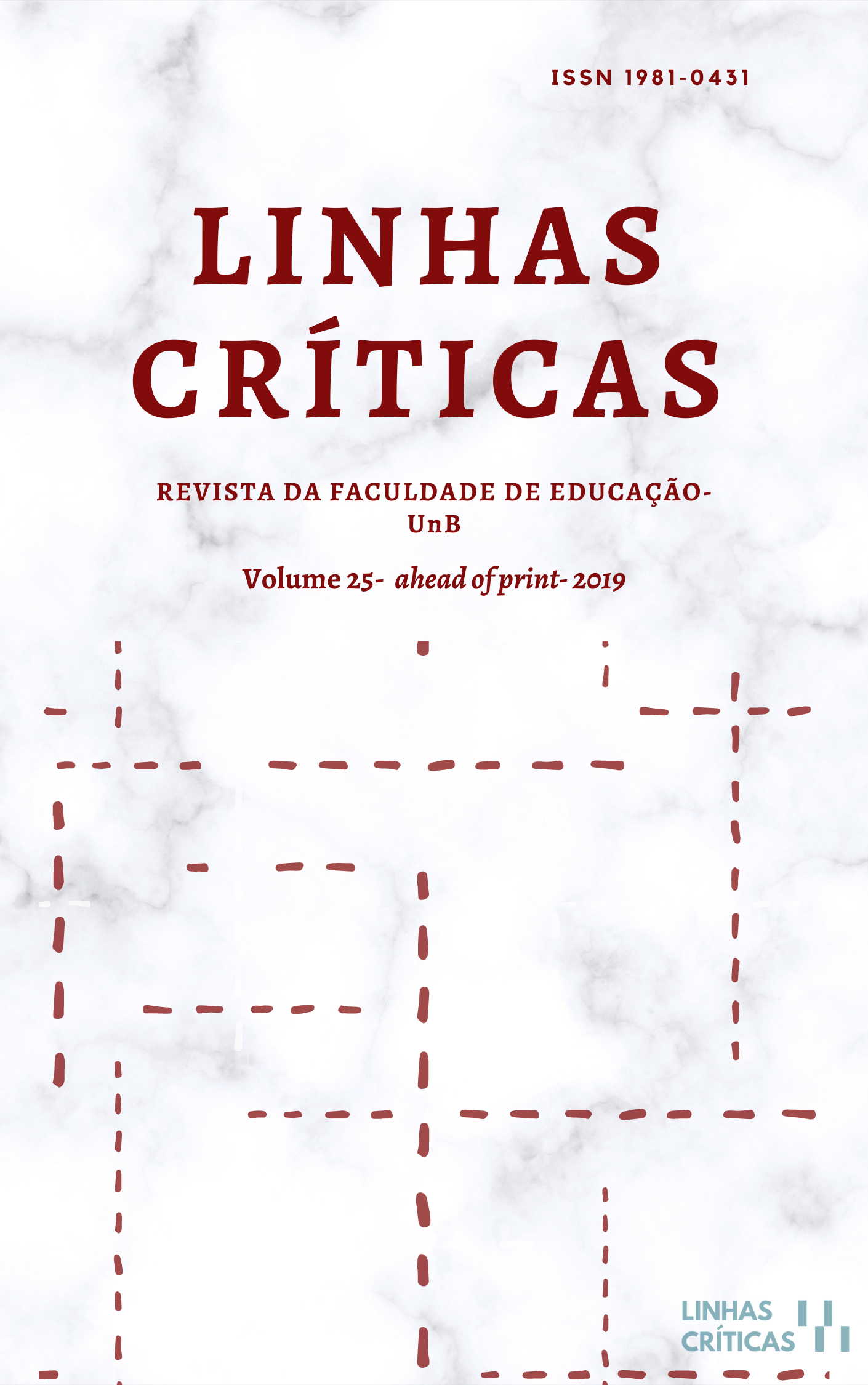Por uma educação científica que problematize a mídia
DOI:
https://doi.org/10.26512/lc.v25.2019.19850Keywords:
Media, Paulo Freire, Education and Science TeachingAbstract
The purpose of the paper is to defend that one of the most important purposes for teaching science is to problematize the media. For this, first a theoretical discussion about Freirean epistemology and education is made. In it, the role of problematization in the process of raising awareness is highlighted. Then there is a discussion about the role of the media in society, highlighting its political uses. From this discussion a review of articles on Education and Media and Media and Science Teaching is presented with the aim of highlighting the main potentialities of this approach. Finally, it is argued that only a scientific education that problematizes the media allows a critical and citizen formation.
Downloads
References
Bévort, E., & Belloni, M. (2009). Mídia-educação: conceitos, história e perspectivas. Educação & Sociedade, Campinas, 30, 1081-1102.
Caldas, G. (2006). Mídia, escola e leitura crítica do mundo. Educação e Sociedade, Campinas, 27, 117-130.
Cardoso, D., Gurgel, I., Noronha, A., & Watanabe, G. (2015). Texto Jornalístico sobre Ciência: uma análise do discurso sobre a natureza da ciência. Revista Alexandria, 8(3), 229-251.
Chomsky, N. (2013). Mídia: Propaganda política e manipulação. São Paulo: Martins Fontes.
Delizoicov, D., Angotti, J., & Pernambuco, M. (2002) Ensino de Ciências: Fundamentos e Métodos. São Paulo: Editora Cortez.
Freire, P. (2015). Extensão ou Comunicação. São Paulo: Editora Paz e Terra.
Freire, P. (2014) Pedagogia da indignação: cartas pedagógicas e outros escritos. São Paulo: Paz e Terra.
Freire, P., & Macedo, D. (1990) Alfabetização: leitura do mundo, leitura da palavra. São Paulo: Editora Paz e Terra.
Freire, P., & Shor, I. (2011). Medo e Ousadia. São Paulo: Editora Paz e Terra.
Jarman, R., & McClune, B. (2007) Developing Scientific Literacy:Using News Media in the Classroom. New York: Open University Press.
Kellner, D., & Share, J. (2008). Educação para a leitura crítica da mídia, democracia radical e a reconstrução da educação. Educação & Sociedade, Campinas, 29, 687715.
Pezzo, M. (2011). Ensino de Ciências e Divulgação Científica: Análise das Recontextualizações entre as Revistas Carta Capital e Carta na Escola. Dissertação, Centro de Educação e Ciências Humanas da Universidade Federal de São Carlos.
Pezzo, M. (2016). Olhares de Professores de Ciências em Formação sobre as Mídias, sua Inserção no Ensino e a Educação para as Mídias. Tese, Centro de Educação e Ciências Humanas da Universidade Federal de São Carlos.
Pezzo, M., & Pierson, A. (2013). Especificidades e complementaridade entre Ensino de Ciências e Divulgação Científica: reflexões a partir da análise mensal voltada à inserção das “atualidades” no ambiente escolar. IX Congreso Internacional sobre Investigación en Didáctica de las Ciencias, 1, 3093-3097.
Pinheiro, R. (2015). Leitura crítica da mídia à luz de Paulo Freire: Uma reação ao silenciamento de educandos e educadores na História da Educação In: Anais do XII EDUCERE: Formação de professores, complexidade e trabalho docente-. Curitiba: Champagnat, 1, 25281-25297.
Ribeiro, R. A., & Kawamura, M. R. D. (2008). Ensino de Física e formação do espírito crítico: reflexões sobre o papel da divulgação científica. In: XI Encontro de Pesquisa em Ensino de Física, 1, 1-12.
Teixeira, M. (2002) Pressupostos do jornalismo de ciência no Brasil. In: Massarani, L.; Moreira, I. & Brito, F. Ciência e Público: caminhos da divulgação científica no Brasil. Rio de Janeiro: Editora UFRJ, 133-142.
Zimmerman, C., Bisanz, G. L., & Bisanz, J. (1999) ‘Science at the supermarket: What’s in print, experts’ advice and students’ need to know’, In: Annual meeting of the National Association for Research in Science Teaching, Boston, MA.
Published
How to Cite
Issue
Section
License
Copyright (c) 2019 Revista Linhas Críticas

This work is licensed under a Creative Commons Attribution 4.0 International License.
Authors who publish in this journal agree to the following terms:
-Authors maintains the copyright and grants the journal the right of first publication, the work being simultaneously licensed under the Creative Commons Attribution License which allows the sharing of the work with recognition of the authorship of the work and initial publication in this journal.
- Authors are authorized to enter into additional contracts separately, for non-exclusive distribution of the version of the work published in this journal (eg publish in institutional repository or as a book chapter), with acknowledgment of authorship and initial publication in this journal.
-Authorers are allowed and encouraged to publish and distribute their work online (eg in institutional repositories or on their personal page) at any point before or during the editorial process, as this can generate productive changes as well as increase the impact and the citation of published work (See The Effect of Free Access).



